UPPCS Mains Syllabus 2025 with Answer Writing Tips
The Uttar Pradesh Public Service Commission (UPPSC) conducts the PCS Mains Exam after the Prelims. This stage is crucial as the marks scored here directly decide your final selection and merit rank. Unlike the prelims, which is objective, the Mains exam is descriptive and tests analytical ability, clarity of thought, and writing skills.
In this guide, we’ll provide the detailed UPPCS Mains Syllabus (Paper-wise) along with answer writing tips to help aspirants excel.
PaperSubjectMarksDuration
Paper I
General Hindi
150
3 Hours
Paper II
Essay
150
3 Hours
Paper III
General Studies I
200
3 Hours
Paper IV
General Studies II
200
3 Hours
Paper V
General Studies III
200
3 Hours
Paper VI
General Studies IV (Ethics)
200
3 Hours
Paper VII & VIII
Optional Subject Paper I & II
200 Each
3 Hours Each
Total = 1500 Marks (Written) + Interview (100 Marks).
Hindi grammar (Sandhi, Samas, Alankar, Muhavare, etc.)
Vocabulary, usage, and idioms
Letter writing, precis writing
Essay in Hindi
Comprehension passages
Answer Writing Tip: Focus on clarity & correctness. Avoid spelling and grammar mistakes. Practice precis writing to reduce wordiness.
Candidates must write three essays in total.
Section C: Science, Technology, National/International Events, UP-specific issues
Section B: Political, Administrative, Economic, Agriculture, Environment
Section A: Literature, Culture, Social Issues, Women Empowerment
Topics are usually divided into three sections:
Answer Writing Tip: Use the Introduction-Body-Conclusion (IBC) format. Include relevant facts, examples, and quotes. Keep paragraphs short and structured.
Freedom struggle and role of leaders
Ancient, Medieval, Modern history
Indian History, Culture, and National Movement
Physical geography, resources, industries
Social & Economic Geography of India & World
Features of Indian Constitution, Fundamental Rights, Union & State structure
Polity, Constitution, and Governance
History, culture, economy, and geography of Uttar Pradesh
UP Special Topics
Answer Writing Tip: Draw maps, diagrams, timelines wherever applicable. Use bullet points for facts and flowcharts for processes.
International Relations (India & Neighboring countries, UN, WTO, IMF)
Role of Civil Services in Democracy
Parliament & State Legislature
Indian Constitution: Amendments, Functions, Rights
Polity, Governance & International Relations
Answer Writing Tip: Link answers with current affairs. Quote articles of the Constitution or Supreme Court judgments where relevant.
Indian Economy, Agriculture, Industry, Infrastructure
Economy & Development
IT, Space, Biotechnology, Robotics, AI
Science & Technology
Climate change, Biodiversity, Disaster Management
Environment & Ecology
Internal security challenges, Cyber security, Role of agencies
Security Issues
Answer Writing Tip: Include data, reports, and government schemes. (Example: NITI Aayog, Economic Survey, UP-specific policies).
Ethics & Human Interface
Emotional Intelligence
Public/Civil Service Values
Integrity, Probity in Governance
Case Studies
Answer Writing Tip: In case studies, use ethical frameworks like Utilitarianism, Kantian Ethics, Gandhian Principles. Structure answers in Problem → Ethical Issues → Solutions → Conclusion format.
UPPCS offers a wide range of Optional Subjects like History, Geography, Political Science, Sociology, Public Administration, Agriculture, Law, Literature, etc.
Answer Writing Tip: Stick to one optional that overlaps with GS or your graduation subject. Practice past year papers and write in a structured manner.
Stick to the Word Limit – Usually 150–250 words. Avoid exceeding.
Use Headings & Subheadings – Makes answers easy to read.
Incorporate Facts & Examples – Government schemes, UP-specific data, NCRB/SECC reports.
Use Diagrams, Maps & Flowcharts – Saves time and adds value.
Maintain Handwriting & Neatness – Presentation matters in descriptive exams.
Practice Time Management – Write mock tests to complete within 3 hours.
Use Balanced Approach – Avoid extreme views in political/social answers.
Revise Regularly – Prepare short notes for revision before the exam.

Lakshya IAS
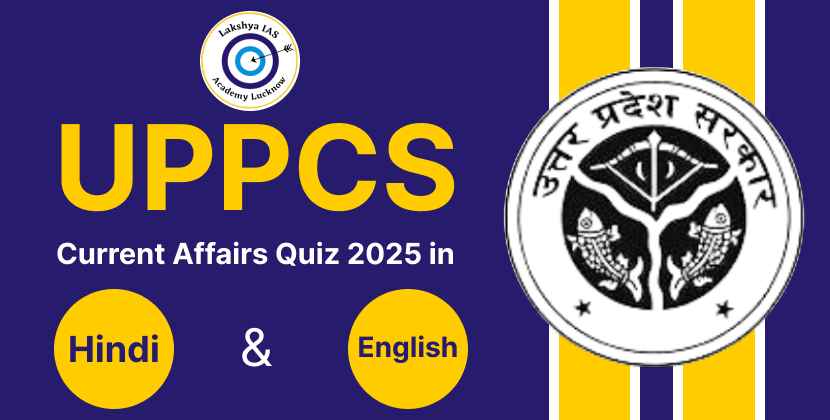
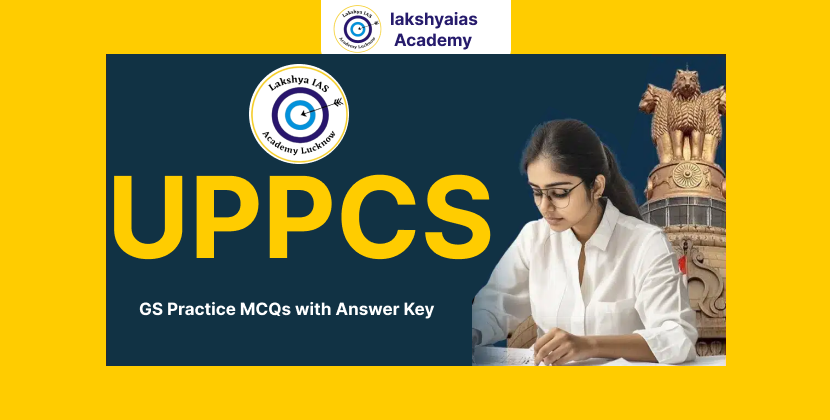
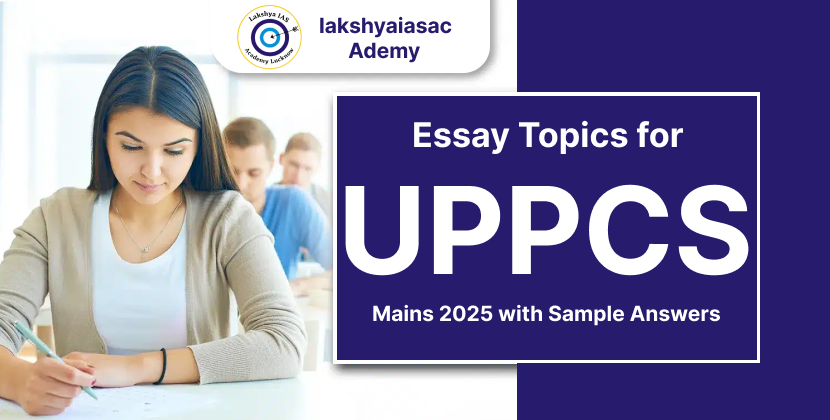
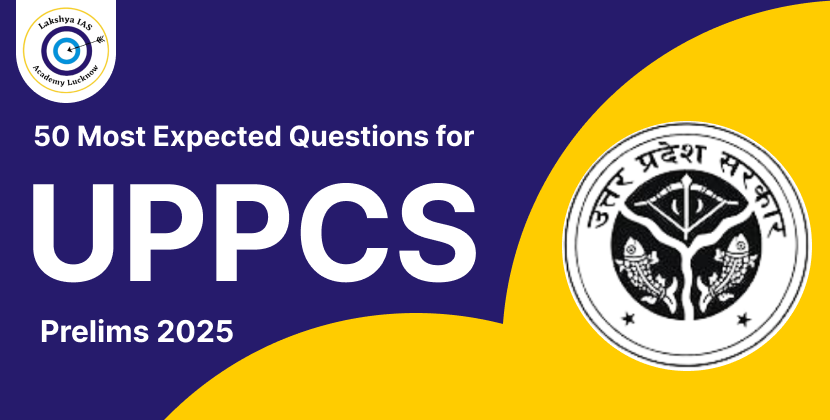
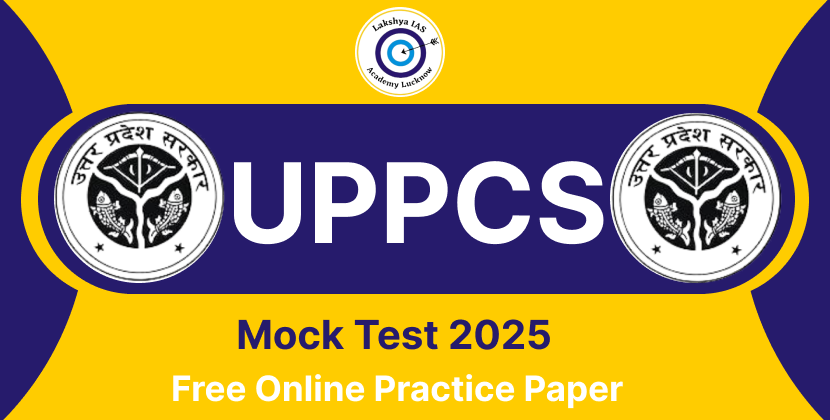
.png)
.png)

.png)
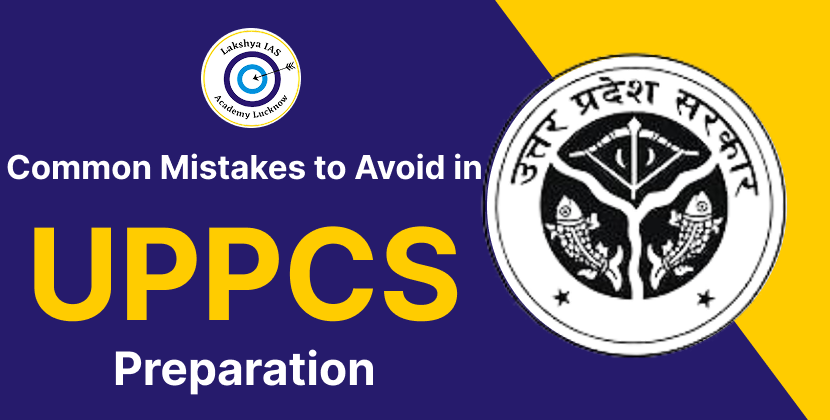
Leave a Comment